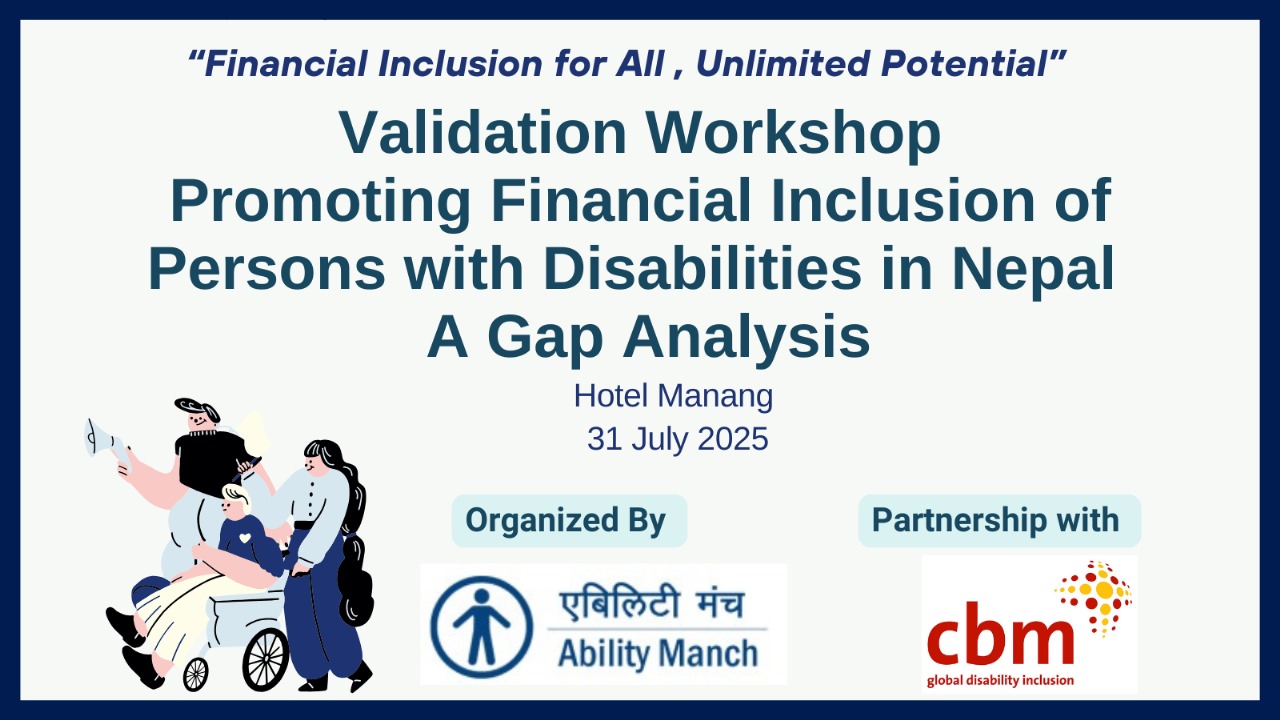On 31 July 2025, Ability Manch, in partnership with CBM Global Disability Inclusion, organized a validation workshop titled “Validation of Disability-Inclusive Financial Inclusion in Nepal: A Study Promoting Financial Inclusion of Persons with Disabilities in Nepal – A Gap Analysis” at Hotel Manang, Kathmandu.
The event brought together a diverse group of stakeholders Organization of Persons with Disabilities OPDs, financial institutions, cooperatives, microfinance organizations, stock companies, disability rights advocates, and financial experts. Together, we validated the findings of the Gap Analysis Study and collectively unpacked the challenges, frustrations, and opportunities tied to financial inclusion for persons with disabilities especially those with intellectual, psychosocial,visual disabilities severe disabilities of belonging form rural and marginalised communities.
The study was carried out across Chitwan District and Kathmandu, focusing on:
-Structural barriers like inaccessible bank buildings, documentation processes, and exclusion in mainstream policies.
-Attitudinal & social discrimination harmful assumptions and stigma that question the capability of persons with disabilities to manage finances.
-Technological accessibility from ATM machines to mobile apps, most systems are not usable by blind, deaf, or people with mobility impairments.
-Policy & implementation gaps like inclusive words in documents, but little action on the ground.
Despite accounts being opened especially for receiving social allowances real financial autonomy is missing. Many bank accounts remain inactive, used only for allowance deposits, not true economic participation. Accessibility checks like Unicode support for screen readers, audio ATMs, and sign language-friendly services are either tokenistic or completely absent.
We also noticed: Some banks are making progress, but many hide behind restrictive regulations (e.g., ATM misuse fears to deny blind users access).The KYC process remains non-inclusive. Many people with disabilities are turned away due to documentation issues, lack of digital literacy, or dependency on caregivers.Generic recommendations have been made before but they haven’t worked. This time, the call is for SMART, realistic, actionable recommendations. This study is more than a report it is a living evidence base, a wake-up call, and a push for structural fixes.

